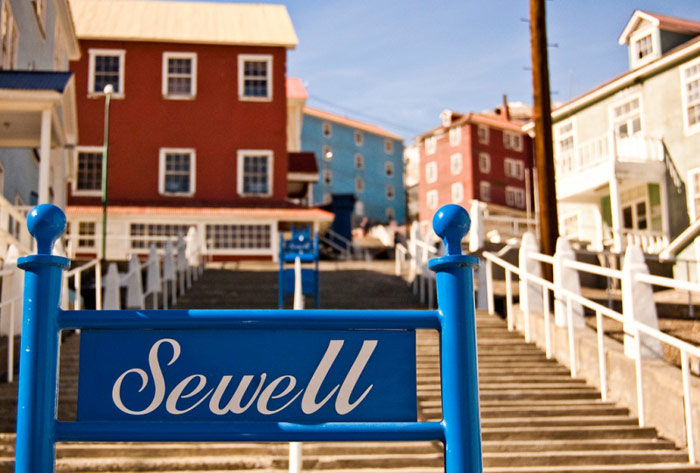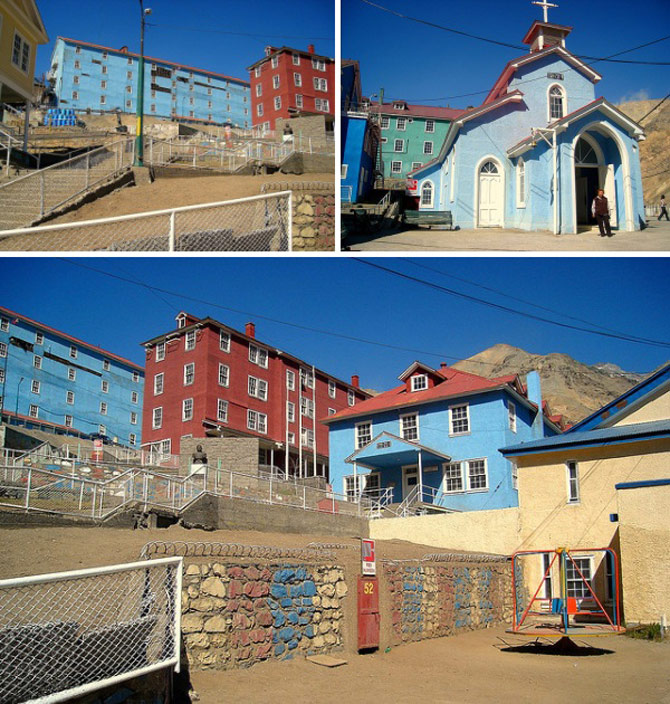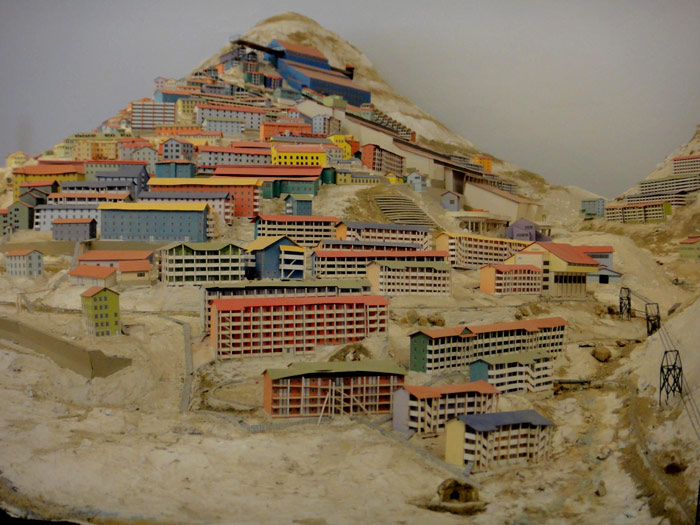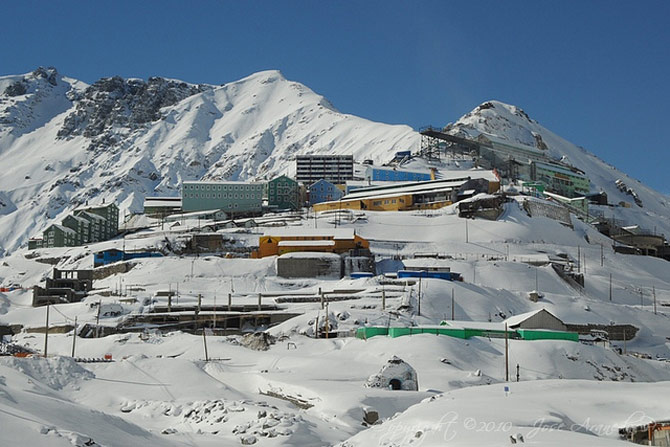Sewell mining town
Unesco's Scientific, Educational and Cultural Organization has recognized Chile's Sewell Mining Town as a World Cultural Heritage in 2006.

Sewell mining town is an abandoned town on the slopes of the Andes, in the Machali region of Chile. This town is 2000 meters above sea level.
The town of Sewell was founded in 1905, in the first place it was not developed as a town but was actually a mining site founded by Branden for the purpose of mining copper ore in this mountain range. Branden is the first copper mining company founded in Chile but one of the largest copper ore mining companies in the world . This is also considered a typical example for building and establishing a company with business activities in a remote, remote, harsh climate but still succeed thanks to the utilization and processing of natural resources. nature. Not only is this important in the economic development of Chile, Branden company, in other words, the town of Sewell also plays a particularly important role in contributing to the expansion of the above resource exploitation technology. global at that time.

Sewell town was built very special, not only climbing on the slopes of the famous Andes, but this place did not have a trail to travel . The only way to reach the mining area is a long staircase built straight up from the train station. Later, when more developed, along both sides of the stairs, people had to build more trees to create common spaces, as well as a square for the town.

Sewell had only one building built simply like a small farm near the ore mining area. At this time, there is no name here, but merely a mining site invested by Branden. Then a hydroelectric plant and elevator system were built to transport the copper after mining to the ground and other necessary materials to the mine.

Until 1915, the town was officially named Sewell after a key figure Barton Sewell - the main partner of Branden. Since then, the town is more interested in developing infrastructure, building urban landscapes and architecture to create its own mark. A series of wooden buildings are built with various colors.

When the famous railway connects the mining area to the construction of Rancagua, the town of Sewell grows faster. It is estimated that this time the town has more than 100 built houses, each with its own color is the home of thousands of miners and their families. This development leads to the need to build public services such as hospitals, churches, schools, theaters . All these public buildings also appear almost immediately when the town begins. notice their need. At its peak, the town had a total population (including miners) of more than 15,000 people.

By the late 1960s, the copper mining industry was nationalized. The mine site becomes a national asset, the state is responsible for and directly manages the operation of this mine. However, after a long time of exploitation, the resources in Sewell were exhausted, people began to leave here to find a good life. By 1980, the city had no one living and was completely abandoned since then. By 1998, the Chilean government recognized Sewell as a national monument and filed a proposal to Unesco to recognize it as a World Heritage Site.

In 2006, Sewell mining town officially became a World Cultural Heritage by criterion (ii): Sewell Town is a prominent example of the establishment of a mining and production company in remote areas. sticky, remote, harsh climate has been successful. Through proper labor and orientation, this town has grown not only to stabilize the local economy but also to contribute significantly to Chile's economic development and to contribute to the development of the industry. world copper ore mining industry.


- Mining area in the town of Roros - Norway
- 3500 people live in the underground town in Australia
- American town burned for 5 decades
- Kabwe town - The most toxic place in the world
- The town of fire could suddenly fire at the feet in America
- The body of the body did not decompose due to the cold in Norway
- Strange towns in the world
- 9 beautiful Chinese towns
- Mining from asteroids
- In just a decade, people will start mining in space
- The most mysterious ghost towns on earth
- Ghost town emerged from the water
 Suzhou classic bonsai garden - China
Suzhou classic bonsai garden - China Chau Nguyen Dynasty
Chau Nguyen Dynasty Thai Son Mountain - World Wonder
Thai Son Mountain - World Wonder Ancient villages of Shirakawa-go and Gokayama
Ancient villages of Shirakawa-go and Gokayama